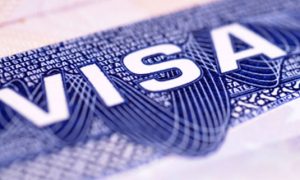The DoCA held a meeting on Thursday with restaurant associations and consumer organizations on the levy of service charge in hotels and restaurants.
- The restaurant associations observed that when service charge is mentioned on the menu, it involves an implied consent of the consumer to pay the charge
- Service charge is used by restaurants and hotels to pay the staff and workers and is not charged for the experience or food served to consumer
Also Read– Top Cryptocurrency News Today: Bitcoin in green, Ethereum popular for NFTs and more
The Department of Consumer Affairs (DoCA) has announced that it will soon come up with a robust framework to ensure strict compliance by the stakeholders with regard to service charge levied by restaurants and hotels as it adversely affects consumers on a daily basis. Interestingly, the NRAI has also issued a clarification to notify that service charges levied by the restaurants are very much legal and the Department of Consumer Affairs has yet to take a decision on the new framework amid reports circulating that the decision had already been taken.
Additionally, the DoCA held a meeting on Thursday with restaurant associations and consumer organizations on the levy of service charge in hotels and restaurants. The meeting was chaired by Rohit Kumar Singh, Secretary, DoCA.
As per an official release, the meeting was attended by major restaurant associations including National Restaurant Association of India (NRAI) and the Federation of Hotel and Restaurant Associations of India (FHRAI) and consumer organizations.
Major issues raised by the consumers on the National Consumer Helpline of DoCA relating to service charge were discussed. Additionally, guidelines on fair trade practices related to the charging of service were also referred to.
The restaurant associations observed that when service charge is mentioned on the menu, it involves an implied consent of the consumer to pay the charge. Service charge is used by restaurants/hotels to pay the staff and workers and is not charged for the experience or food served to consumer.
Consumer Organizations observed that levying service charge is patently arbitrary and constitutes an unfair as well as restrictive trade practice under the Consumer Protection Act. Questioning the legitimacy of such charge, it was highlighted that since there is no bar on restaurants/hotels on fixing their food prices, including an additional charge in the name of service charge is detrimental to the rights of consumers.
NRAI President Kabir Suri said levying service charge is “neither illegal, nor an unfair trade practice as alleged, and this debate in public domain is creating unnecessary confusion and disruption in smooth operations of restaurants.”
“The service charge is transparent, worker friendly and is also recognised by many judicial orders which have been shared with the department. In addition, the government also earns revenue from the service charge as tax is paid by restaurants on the same,” he said.
Also Read– Gold Prices Up Rs 10,000; Check Latest Gold Rates In Your City On June 3 Here | Gold Rate Today
Meanwhile, FHRAI on Thursday said that a restaurant collecting service charge is neither illegal nor is in violation of the law. The association explained that a service charge, like any other charge collected by an establishment, is part of the invitation offered by the restaurant to potential customers. It is for customers to decide whether they wish to patronise the restaurant or not, FHRAI said in a separate statement.
“… a service charge is meant for the benefit of the staff and so, some establishments make a conscious choice to adopt a policy beneficial towards its staff members. Levying service charge is a general practice adopted across the globe. It is neither illegal nor violating any law. Each establishment is free to create its own policy in this regard,” FHRAI Vice President Gurbaxish Singh Kohli said.
About concerns over transparency in adding service charge in the bill, FHRAI clarified that the charge is disclosed in advance and the same is clearly printed as a separate heading in the bill as a “charge”, not a “tax.” Thus, there is complete transparency with regard to the amount, the rate and the purpose of the charge.

































